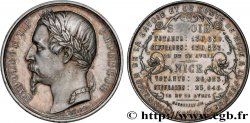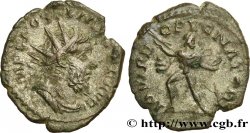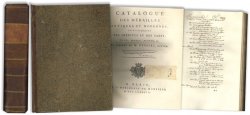недоступный.
Товар уже продан в нашем интернет-магазине (2020)
Цена: : 300.00 €
Товар уже продан в нашем интернет-магазине (2020)
Цена: : 300.00 €
Тип Médaille, corps législatif, session de 1870
Дата: 1870
Монетный двор / Город: 03 - Allier
Металл: silver
Диаметр: 51 mm
Ориентация осей монеты: 12 h.
Вес: 65,74 g.
Век: lisse + abeille ARGENT
Пуансон: Abeille (1860 - 1880) ARGENT
Редкость: R3
Комментарии о состоянии
Cette médaille est frappée sur un flan régulier. Exemplaire ayant été légèrement nettoyé, des frottements dans les champs. Présence de quelques coups et fines rayures
Лицевая сторона
Аверс: легенда: NAPOLÉON III - EMPEREUR.
Аверс: описание: Tête laurée à droite de Napoléon III ; au-dessous BARRE.
Обратная сторона
Реверс: легенда: *CORPS LEGISLATIF* - SESSION DE 1870 // LE BON / DESMAROUX / DE GAULMIN / (ALLIER).
Реверс: Описание: Légende en 4 lignes dans un médaillon entouré d’une couronne de lauriers.
Комментарий
Gilbert Desmaroux de Gaulmin, naquit le 11 février 1815 à Montmarault (Allier) et décéda le 19 août 1885 à Saint-Gérand-le-Puy (Allier). Élève de l’École polytechnique il était docteur en droit. Il fut élu le 8 janvier 1849 en tant que député de l’Allier. Soutien du prince-président il se présenta sous le second Empire en tant que député de l’Allier et fut reconduit sous les quatre législatures sous l’étiquette de la majorité dynastique (29 février 1852-4 septembre 1870). Le 25 décembre 1869, Napoléon III lui accorda le titre de baron.







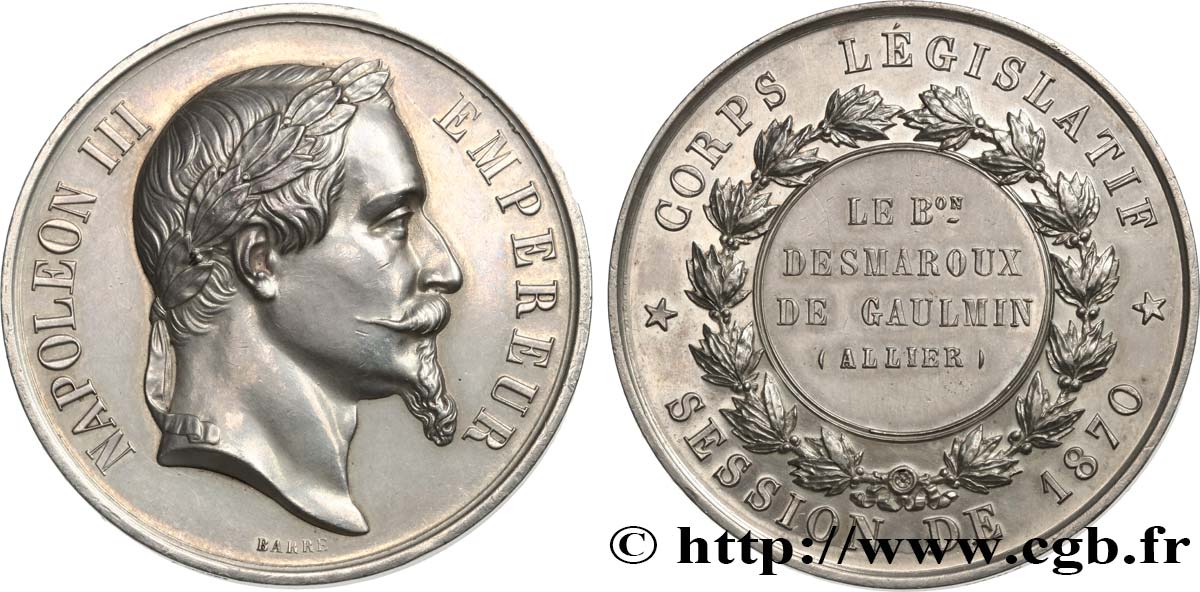
 Cообщить об ошибке
Cообщить об ошибке Распечатать страницу
Распечатать страницу Отправить мой выбор
Отправить мой выбор Задать вопрос
Задать вопрос Consign / sell
Consign / sell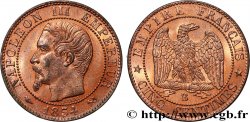
 Информация
Информация
